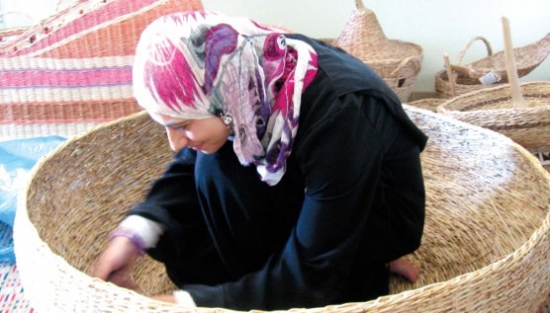
A joint project of Jews and Arabs, that gives Arab women ways to produce, earn and progress.
Finding the right title for this article was a challenge – I could simply have written “Sindyanna of Galilee” and you readers would have shrugged and read on mainly because you wonder who or what Sindyanna is. But this is not just a name; it is an organization which strives to assist in strengthening the economy of the Arab population, especially the women, both within Israel and under the Palestinian Authority. Help was needed for a sector of the Arab society to find pathways to a better future and in an effort to work towards peace from another perspective, steps were taken to form the organization. Hadas Lahav, one of Sindyanna’s founders, told me how it all came about. As far back as the early 80s she has been a Peace Now activist and by trying to find ways to promote an egalitarian society she eventually succeeded in launching the Sindyanna project together with Samyr Nassir for whom the fate of the Arab woman was highly important.
Established in 1996 Sindyanna combines commercial activity with work within the community, thereby giving women ways to produce, earn an income and progress in their standing. The organization has also assisted in developing the olive industry and other artisan productivity in a wider context. Together with members of the World Fair Trade Organization those farmers involved in improving the utilization of their land are made conscious of the necessity for land preservation and environmental considerations and are also introduced to commerce using the principle of fair trade. In 2009 Sindyanna launched a project in Al-Jazur, Wadi Ara, with the aid of land owners, members of the Younes family and today the olive trees are thriving against all odds. On what was fallow, stony land without any infrastructure now thrives a modern organic olive plantation of 10 hectares. Working through Sindyanna and the World Fair Trading Organization brings with it the advantages of spreading awareness of products and implementing a growth of sales across the world.
In May 2011 Jerusalem hosted the second annual Terra Olivio international competition for olive oils produced in countries of the Mediterranean. Events included three days of judging the entries, an international conference on “The revolution of the olive oil industry through quality, culinary improvement and health”, in addition to tasting workshops and lectures by leading international chefs. Success came for Sindyanna’s Extra Virgin Olive Oil as they won the Prestige Gold Medal for the best Israeli Barnea Olive oil. (The Barnea olive tree which has gained worldwide popularity with oil producers was indeed developed in Israel.) Their success was brought to our editor, Merle Gutmann’s, attention; she passed the caption on to me with the thought of knowing more about Sindyanna and thus I had the pleasure of doing just that by driving to the Western Galilee to their Visitors' Center in Kufr Manda.
The Center houses a professional basketry workshop where previously unemployed Arab women now find a source of income whilst preserving a traditional craft. There one can meet the women, learn more about Sindyanna’s work from Osnat Sperling, who administers the Center, and meet Samyr Nassir, who ceaselessly encourages the Arab women involved to continue to better their situation. To perceive their intent and observe the pride the women take in the quality of their production and to talk with them about their hopes and fears was an experience that others should share. To quote from their brochure: “Providing the best in quality while swinging the balance toward justice”, and these words are indeed food for thought. There are baskets of all sizes to suit so many functions and they are woven making use of natural products; the branches of olive, willow and other local trees are used. The date tree fronds with which a final touch or special finish is achieved require arduous effort and skill to insert in an artistic fashion. Basket weaving is a centuries old tradition that was widespread among Galilean and West Bank villages.
Membership of the World Fair Trade Organization has brought Sindyanna many overseas connections and opportunities for sales. With pride Osnat told me of obtaining orders for the baskets from as far away as Japan. In addition to the baskets on display and for sale are olive oils, soaps enriched with a choice of local ingredients – honey, lemon, Dead Sea mud, sage and pomegranate, as well as jars of za’atar (hyssop) composed of organically grown sesame seeds and other natural ingredients and also carob syrup and honey. For groups wishing to visit, there is also the possibility of requesting a meal of the local delicacies which the women will prepare.
Sindyanna symbolizes a special cooperation between Arabs and Jews and is hopefully planting additional seeds for the production of a solution to the Middle East conflict by opening up and improving economic opportunities. Last year a group belonging to “Save the Olives” organization from Japan visited the Center and their leader wrote:
“I hope one day your endeavors will break the wall between people.”
Sindyanna of Galilee
04 986 3191, 054 659 8910
www.sindyanna.com
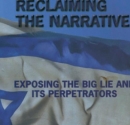 Israel: Reclaiming the Narrative - A Review
Israel: Reclaiming the Narrative - A Review ESRA Outing to Aida at Masada
ESRA Outing to Aida at Masada 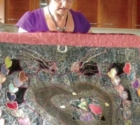 Coffee Group for Immigrants enters 5th year
Coffee Group for Immigrants enters 5th year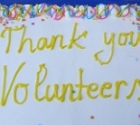 A new website in English - on Volunteering - Launched in Israel
A new website in English - on Volunteering - Launched in Israel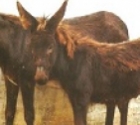 Help Needed for Abused Horses and Donkeys
Help Needed for Abused Horses and Donkeys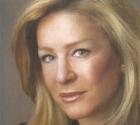 Heather's Heseg
Heather's Heseg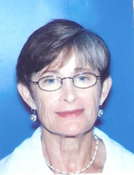 Barbara Abraham
Barbara Abraham